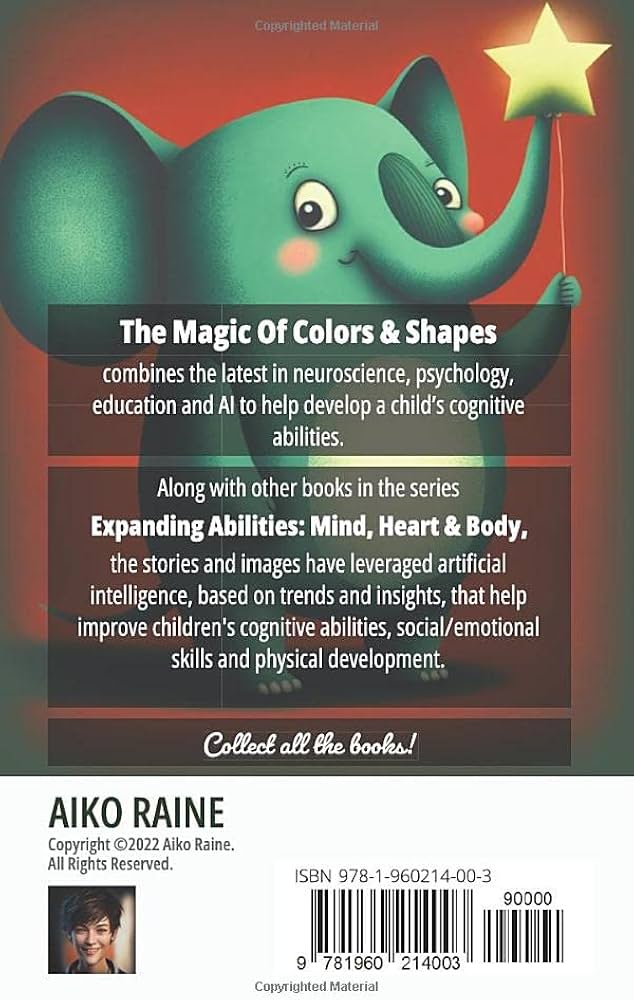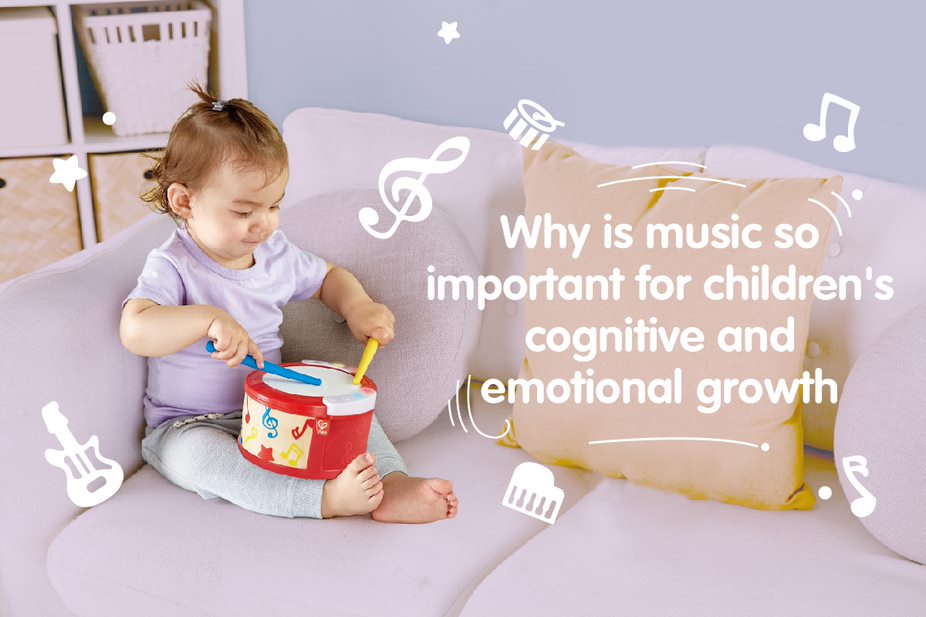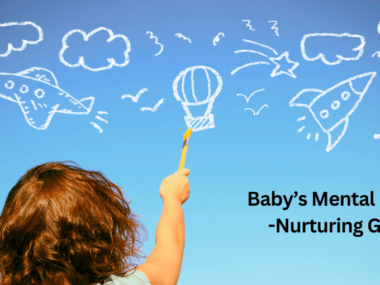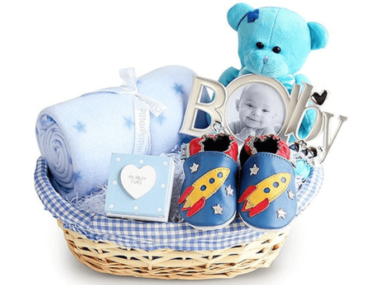Table of Contents Show
The magic of music benefits your child’s cognitive and emotional development in amazing ways. We explore the incredible impact music has on your child’s brain and emotional well-being, helping them develop essential skills and enhance their overall growth.
So, let’s discover how music shapes and nurtures young minds.
Understanding The Power Of Music
Understanding the Power of Music
The Impact Of Music On The Brain
Music is not just a series of notes and melodies; it has a profound impact on our brain. Numerous studies have shown that music has the power to alter brain structure and function in remarkable ways. When children engage with music, it stimulates various parts of the brain responsible for language, memory, attention, and problem-solving skills. This multisensory experience enhances neural connections and promotes overall brain development.
How Music Stimulates Cognitive Development
The benefits of music extend beyond entertaining melodies. Research reveals that music can significantly enhance cognitive abilities in children. When children play musical instruments or engage in musical activities, they develop stronger executive functions such as working memory, attention control, and cognitive flexibility. Additionally, exposure to music from an early age has been linked to higher IQ scores, improved math and reading abilities, and enhanced spatial-temporal skills. The rhythmic patterns, melodies, and harmonies in music provide a structured framework that allows children to hone their cognitive skills while enjoying the experience.
Emotional Benefits Of Music On Children
The wonders of music go beyond cognitive development; it also has a profound impact on a child’s emotional well-being. When children listen to or engage with music, it triggers emotional responses and releases hormones like endorphins, oxytocin, and dopamine. These hormones create a sense of pleasure, happiness, and relaxation. Music acts as a powerful emotional outlet, allowing children to express and regulate their feelings effectively. Whether it’s a cheerful tune that uplifts their spirits or a soulful melody that brings comfort during a challenging time, music has the ability to evoke various emotions and provide a safe space for children to explore and understand their feelings.
In conclusion, the power of music is undeniable when it comes to promoting cognitive and emotional development in children. By understanding how music impacts the brain and stimulates cognitive functions, we realize the immense potential it holds for our children’s growth. So, let’s harness this power of music and provide our children with the opportunity to experience the magic it brings.
Developing Cognitive Skills Through Music
Welcome to the second part of our blog series on the magic of music and its impact on your child’s development. In this segment, we will explore how music can significantly contribute towards the cognitive development of your little ones. From enhancing memory and attention span to boosting problem-solving abilities and improving language and literacy skills, music truly has the power to shape your child’s cognitive skills. Let’s delve deeper into each of these areas.
Enhancing Memory And Attention Span
Musical training has been proven to have a positive impact on memory and attention span. When children engage in activities like playing an instrument or learning to sing, their brains are stimulated in a unique way that promotes the development of these cognitive functions. Research shows that exposure to music helps children improve their ability to retain information, recall facts, and focus on tasks for more extended periods.
Boosting Problem-solving Abilities
Learning music involves problem-solving skills that can transcend into other areas of a child’s life. When kids are required to read and understand musical notations, follow a rhythm, or improvise during a performance, their brains are actively engaged in problem-solving activities. By consistently exercising this complex mental process, children sharpen their problem-solving skills, which can be instrumental in academic pursuits and everyday situations.
Improving Language And Literacy Skills
Music and language are closely related, and the development of language skills can greatly benefit from musical exposure. When children sing along to songs, they learn to pronounce words effectively, develop their vocabulary, and improve their enunciation. In fact, studies suggest that musical training enhances literacy skills, such as reading comprehension and phonological awareness. The rhythmic patterns and melodic structure in music help children recognize pattern recognition, which is crucial for language development.
Overall, engaging your child in musical activities sets the stage for multi-dimensional cognitive development. From memory and attention span to problem-solving skills and language abilities, music works its wonders in shaping your child’s young mind. So, don’t underestimate the magic of music, and let your child experience its transformative power.
Emotional Development Through Musical Engagement
Fostering Self-expression And Creativity
Music holds the power to unlock a child’s innate creativity and encourage self-expression. It provides a medium through which children can express themselves in unique and personal ways. This freedom of expression fosters an environment that encourages children to explore their emotions, thoughts, and ideas without limitations.
When children engage with music, they have the opportunity to experiment with various musical instruments, melodies, rhythms, and lyrics. Whether it’s through singing, dancing, or creating their own compositions, music allows children to tap into their imagination and express their emotions in a safe and constructive manner.
Enhancing Emotional Intelligence In Children
Emotional intelligence plays a crucial role in a child’s overall development. It refers to a child’s ability to recognize, understand, and manage their emotions effectively. One of the remarkable ways that music contributes to emotional intelligence is by evoking different emotions in children and providing a platform to explore and understand them.
Exploring various genres of music exposes children to melodies that evoke happiness, sadness, excitement, and tranquility. By experiencing a range of emotions through music, children become better equipped to recognize and label their emotions accurately. This, in turn, strengthens their emotional intelligence and empowers them to manage their feelings in healthy ways.
Music As A Tool For Stress Reduction And Emotional Regulation
Life can be overwhelming for children, and they often struggle to cope with stress and regulate their emotions. Music acts as a powerful tool to help children find solace during challenging times and regulate their emotional state.
Listening to calming melodies or engaging in rhythmic activities, such as drumming or playing a musical instrument, can reduce stress levels in children. Music has the ability to distract the mind, allowing children to momentarily escape from their worries and find inner calmness. Moreover, engaging in musical activities stimulates the release of endorphins and dopamine, which are known to boost mood and promote relaxation.
Additionally, music provides a structured and predictable framework that helps children organize their thoughts and emotions. When children are actively engaged in musical activities, they learn to focus their attention, regulate their breathing, and express their emotions in a controlled manner. This promotes emotional regulation and equips children with the skills to manage their emotions effectively.

Credit: www.amazon.com
The Role Of Music In Social And Behavioral Growth
The Role of Music in Social and Behavioral Growth
Music has a mesmerizing power that goes beyond entertainment and pleasure. It plays an essential role in shaping various aspects of a child’s development, including cognitive, emotional, and social growth. When it comes to social and behavioral development, music proves to be an excellent tool for fostering important skills and traits in children. In this article, we will explore the profound impact of music on social interaction and how it contributes to building strong, confident, and well-rounded individuals.
Building Social Skills Through Musical Activities
Engaging in musical activities offers a unique platform for children to develop and refine their social skills. Whether it’s participating in a choir, joining a band, or playing a musical instrument, these experiences encourage children to collaborate, communicate, and establish connections with their peers.
By working together in a musical ensemble, children learn to listen attentively, take turns, and respect others’ ideas and contributions. They develop skills such as empathy, understanding, and patience as they navigate the harmonies and rhythms together. Moreover, when children engage in improvisation, they learn how to adapt quickly, respond creatively, and cooperate with others.
Playing music with others not only boosts social skills but also nurtures a sense of belonging and community. Being part of a musical group helps children develop a strong support system and cultivate meaningful relationships with like-minded individuals who share their passion for music.
Promoting Teamwork And Collaboration
Music is inherently a collaborative art form, and it emphasizes the importance of teamwork and collaboration. Whether it’s a band rehearsing for a performance or a school choir practicing for a concert, musical activities require everyone to work together towards a common goal.
When children participate in musical group settings, they learn the significance of coordination, cooperation, and synchronization. They understand that each member’s contribution is essential to creating a harmonious and cohesive performance. This fosters a sense of responsibility, commitment, and accountability, enabling children to appreciate how their individual efforts contribute to the collective outcome.
In addition, the experience of rehearsing and performing music together promotes a strong sense of camaraderie and unity among children. They learn to trust and rely on one another, recognizing that their collective success is the result of their combined efforts.
Music As A Medium For Self-confidence And Self-esteem
Engaging in musical activities can significantly enhance a child’s self-confidence and self-esteem. Learning to sing or play an instrument requires dedication, discipline, and perseverance. As children progress and master new musical skills, they gain a sense of accomplishment and pride in their abilities.
Performing in front of an audience, whether it’s at a school recital or a community event, provides a valuable opportunity for children to build their self-confidence. The applause and recognition they receive for their musical talents boost their self-esteem, encouraging them to believe in their abilities and strive for further improvement.
Additionally, music often serves as a creative outlet for self-expression. Children can express their emotions, thoughts, and individuality through music, giving them a sense of agency and assurance in their own identity. This fosters a positive self-image and a strong belief in their own capabilities, setting the stage for lifelong personal development and success.
Incorporating Music Into Your Child’s Daily Routine
Introducing music into your child’s daily routine can have a profound impact on their cognitive and emotional development. Whether it’s singing a lullaby before bedtime or playing a musical instrument during playtime, music provides a world of benefits for young minds. To help you make the most of this magical tool, here are a few suggestions on how to incorporate music into your child’s daily routine:
Choosing The Right Musical Activities And Instruments
When it comes to selecting musical activities and instruments for your child, it’s crucial to consider their interests and age. By offering a variety of options, you allow them to explore different sounds and find what resonates with them.
Here are some popular musical activities to get you started:
- Singing: Encourage your child to sing along to their favorite songs or nursery rhymes. Singing helps develop their vocal skills and language abilities.
- Dancing: Engaging in dance movements along with music helps improve coordination, rhythm, and motor skills. It’s a wonderful way for children to express themselves creatively.
- Music and movement class: Consider enrolling your child in a music and movement class, where they can explore different instruments, sing songs, and dance with their peers.
Now let’s talk about choosing the right musical instruments:
| Age | Suggested Instruments |
|---|---|
| Infants and Toddlers | Rattles, shakers, drums |
| Preschoolers | Small keyboard, xylophone, maracas |
| School-aged Children | Guitar, violin, flute |
Creating A Supportive And Encouraging Musical Environment
A supportive and encouraging musical environment plays a vital role in fostering your child’s love for music. Here are some tips on creating an environment that truly supports their musical journey:
- Set aside a designated area for musical activities, such as a corner with a few instruments or a shelf for their music books.
- Display their artwork related to music or create a music-themed wall display to spark their interest and curiosity.
- Encourage family members to participate in music-making activities together. This helps create positive associations with music and strengthens family bonds.
- Play a variety of musical genres and styles to expose your child to different sounds and rhythms. It broadens their musical horizons and enhances their appreciation for diversity.
Tips On Nurturing A Love For Music In Your Child
Nurturing a love for music in your child goes beyond simply incorporating it into their routine. It requires patience, support, and a genuine interest in their musical journey. Here are some tips to help you foster that love:
- Be a role model by expressing your own love for music and sharing your favorite songs and artists with your child.
- Encourage active listening by asking your child questions about what they hear in a song. This helps them develop their critical thinking and listening skills.
- Attend live music performances or concerts with your child. Experiencing music in a live setting can be truly inspiring and captivating.
- Provide opportunities for your child to perform or showcase their musical talents. It can be as simple as singing for family and friends or participating in school talent shows.
Remember, every child is unique, and their musical journey will unfold at its own pace. By incorporating music into their daily routine and providing a supportive environment, you are opening doors to endless possibilities and laying the foundation for a lifelong love of music.
Frequently Asked Questions Of The Magic Of Music: How Music Can Benefit Your Child’s Cognitive And Emotional Development
How Does Music Help Children Develop Cognitively And Emotionally?
Music aids in the cognitive and emotional development of children. It enhances their memory, concentration, and problem-solving skills. Moreover, it fosters emotional expression, empathy, and communication abilities. By engaging in musical activities, children develop a well-rounded set of skills that positively impact their overall growth and development.
How Does Music Help With Cognitive Development?
Music aids in cognitive development by improving memory, enhancing attention and focus, fostering creativity, and promoting problem-solving skills. It stimulates various parts of the brain, aiding in the development of language, reading, and mathematical abilities. Additionally, music boosts mood and reduces stress, supporting overall cognitive well-being.
What Is The Role Of Music And The Brain Development Of Children?
Music plays a vital role in the brain development of children. It enhances their cognitive abilities, language skills, and emotional wellbeing. It improves memory, attention, and problem-solving skills while fostering creativity and self-expression. Listening to and playing music engages multiple areas of the brain, aiding in the development of complex neurological connections.
What Are The Psychological Benefits Of Music For Children?
Music has various psychological benefits for children. It helps improve their cognitive skills, promotes emotional expression, boosts self-confidence, and reduces anxiety and stress. Additionally, music enhances social interaction, improves memory and attention span, and supports overall brain development.
Conclusion
In this blog post, we have explored the magical wonders of music in enhancing your child’s cognitive and emotional development. Through engaging with rhythm, melody, and lyrics, music has the power to promote language skills, improve memory, boost creativity, and nurture emotional well-being.
By incorporating music into your child’s daily life, you can set them on a path towards holistic growth and future success. Let the magic of music shape your child’s journey of self-discovery!










